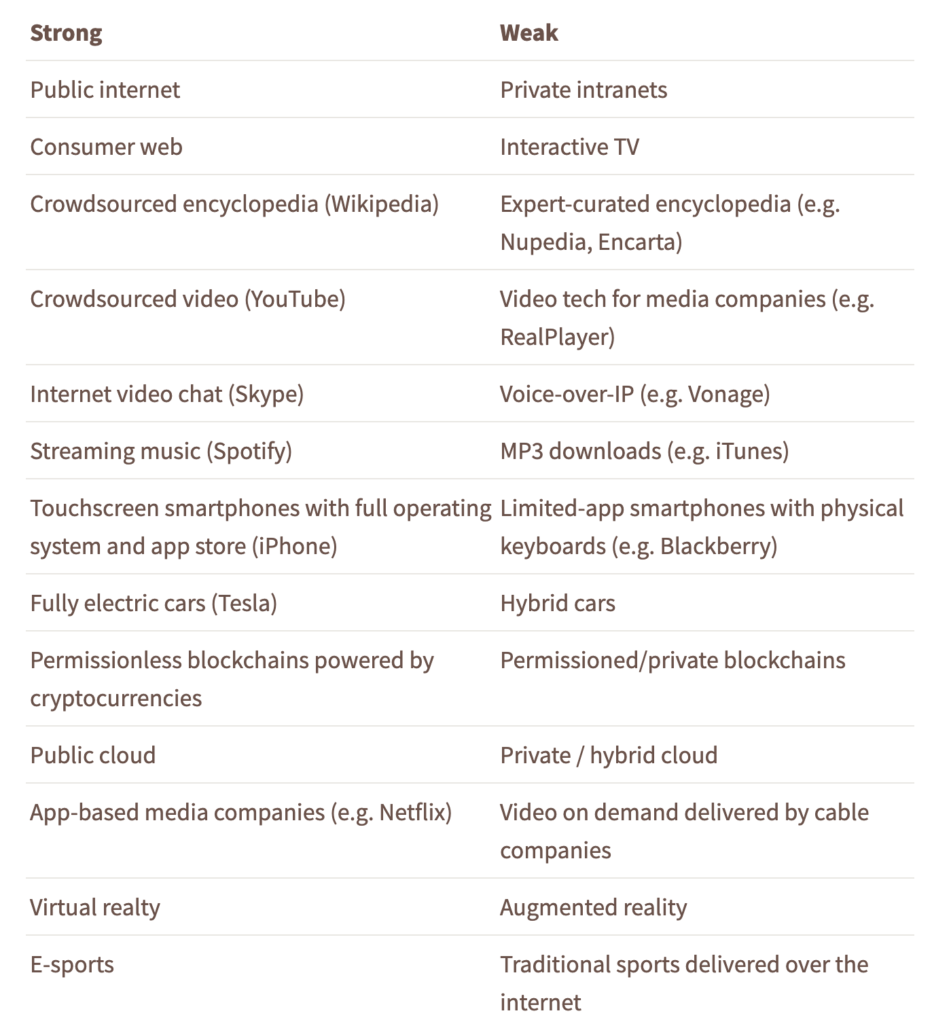The Dumb Idea Paradox: Why great ideas often start out by sounding dumb.

Am I just getting old?
When I encounter a new product idea for the first time, I find myself asking: Is this idea dumb? Or am I just getting old?
Early on, there’s often not much to judge it on besides the idea. Sometimes the idea sounds either dumb or trivial. But over the years, I’ve started to not try to judge too much, especially when it’s early
Ideas seem pretty random because in the past few years, some of the biggest wins were: An app that lets you get into strangers’ cars. An app that lets you stay at random peoples’ houses. Disappearing photos. A site that doesn’t let you play video games, but you can watch other people play. Seriously?
And if you go back a few years earlier, I remember having entire convos about why anyone in the world would want a profile or a website on the internet. Or why phones should be used for calling, and adding email was dumb. It sounds silly, but that was the perspective then
The Dumb Idea Paradox – the official definition
The dumb idea paradox is what happens when an idea sounds dumb, and yet you have a (usually very small) group of people highly engaged in doing it. And maybe that group of people seem to getting bigger and bigger. Will it continue? Will millions ultimately do this thing?
When products that have this property — it’s counterintuitive behavior PLUS it has traction — imho they are the most attractive startups in existence. After all, this is an indicator it’s likely in a new market, and often times, the TAM of these markets ends up being huge!
In other words, this handy graphic:

(Note I made that as a screenshot in GSheets. You’re welcome)
Natives versus immigrants want different kinds of products
Furthermore, these ideas often formed at the seam of the “natives” versus the “immigrants.” If you are Instagram-native, what you consider a great idea for a new retail space or ecomm brand is likely very different than someone who isn’t exposed to the same thousands of pics
The upcoming generation are using tech in a different way. They are Fortnite-native. Minecraft-native. They are streaming-native. They use “insta” differently. Food delivery will be considered a human right. The expectations will be very different.
For network effects-driven products, it matters that your friends are also into the same thing. If my peers aren’t playing Fortnite every day, then I won’t see the same value and engagement. Contrast that to a fully activated network of kids that are on it every day
Thus, I’m sure that the first time I hear about a wild idea that appeals to this group, it will be easy to dismiss out of hand. And perhaps I’d be more attracted in something that takes on the same trends, but is more familiar
Strong and weak technologies
My partner Chris Dixon has written about the idea of strong and weak technologies, which often arrive in pairs at the start of a new technological age. The weak version often sounds more practical, but the strong ones often win. Here are some examples:

The weak version of a technology is often the more plausible, “immigrant” version of an idea. The stronger version will sound better to folks who are natives.
As an investor in consumer companies, I’m always startled when I see surprisingly strong growth metrics on top of an idea that I don’t get. It’s always a signal that I need to dig deeper, at least until I feel like I’m starting to get it. But it’s hard.
So I repeat the question: The next time you hear an idea that sounds dumb, ask yourself — is it really dumb? Or are you just getting old?
PS. Get new updates/analysis on tech and startups
I write a high-quality, weekly newsletter covering what's happening in Silicon Valley, focused on startups, marketing, and mobile.
Views expressed in “content” (including posts, podcasts, videos) linked on this website or posted in social media and other platforms (collectively, “content distribution outlets”) are my own and are not the views of AH Capital Management, L.L.C. (“a16z”) or its respective affiliates. AH Capital Management is an investment adviser registered with the Securities and Exchange Commission. Registration as an investment adviser does not imply any special skill or training. The posts are not directed to any investors or potential investors, and do not constitute an offer to sell -- or a solicitation of an offer to buy -- any securities, and may not be used or relied upon in evaluating the merits of any investment.
The content should not be construed as or relied upon in any manner as investment, legal, tax, or other advice. You should consult your own advisers as to legal, business, tax, and other related matters concerning any investment. Any projections, estimates, forecasts, targets, prospects and/or opinions expressed in these materials are subject to change without notice and may differ or be contrary to opinions expressed by others. Any charts provided here are for informational purposes only, and should not be relied upon when making any investment decision. Certain information contained in here has been obtained from third-party sources. While taken from sources believed to be reliable, I have not independently verified such information and makes no representations about the enduring accuracy of the information or its appropriateness for a given situation. The content speaks only as of the date indicated.
Under no circumstances should any posts or other information provided on this website -- or on associated content distribution outlets -- be construed as an offer soliciting the purchase or sale of any security or interest in any pooled investment vehicle sponsored, discussed, or mentioned by a16z personnel. Nor should it be construed as an offer to provide investment advisory services; an offer to invest in an a16z-managed pooled investment vehicle will be made separately and only by means of the confidential offering documents of the specific pooled investment vehicles -- which should be read in their entirety, and only to those who, among other requirements, meet certain qualifications under federal securities laws. Such investors, defined as accredited investors and qualified purchasers, are generally deemed capable of evaluating the merits and risks of prospective investments and financial matters. There can be no assurances that a16z’s investment objectives will be achieved or investment strategies will be successful. Any investment in a vehicle managed by a16z involves a high degree of risk including the risk that the entire amount invested is lost. Any investments or portfolio companies mentioned, referred to, or described are not representative of all investments in vehicles managed by a16z and there can be no assurance that the investments will be profitable or that other investments made in the future will have similar characteristics or results. A list of investments made by funds managed by a16z is available at https://a16z.com/investments/. Excluded from this list are investments for which the issuer has not provided permission for a16z to disclose publicly as well as unannounced investments in publicly traded digital assets. Past results of Andreessen Horowitz’s investments, pooled investment vehicles, or investment strategies are not necessarily indicative of future results. Please see https://a16z.com/disclosures for additional important information.
